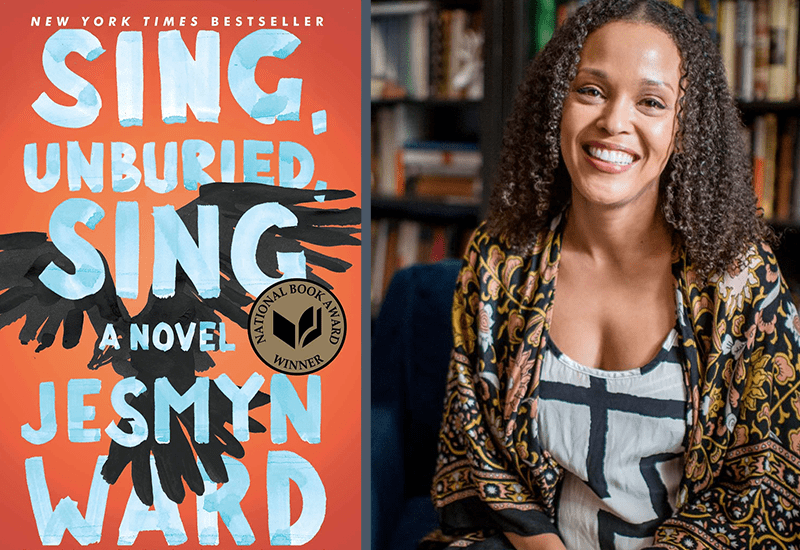Book Review: Jesmyn Ward’s ‘Sing, Unburied, Sing’ Is Both Poetically Brilliant And Tragically Honest

Jesmyn Ward’s 2017 Award-winning novel Sing, Unburied, Sing has been on my radar for a few years now, and one of my resolutions was to tackle my extensive reading list. So although I’m a bit behind the times, here’s a story that is indeed evergreen.
I found Sing, Unburied, Sing to be beautifully written with a gripping and raw narrative. It follows 13-year-old JoJo and his perceptive toddler sister Kayla who live with their supportive grandparents in the fictional town of Bois Sauvage, Mississippi. Among its multiple layers, it tells the story of abandonment and addiction, as drug addicted and emotionally distant mother Leonie creates more and more space between her and her children, until all that remains is air. But out of this loss, a heartening, unbreakable bond between JoJo and Kayla is formed in its place.
In its most calamitous moments, America’s darkest history is revisited. Blood and horror soak through the pages. Racism and violence in both the past and present day are embedded in the very heartbeat of this rural Mississippi town, and graphic descriptions of unspeakable acts left me beyond disheartened. There’s whippings and hangings, racial profiling, and the overall terrorism of white supremecy. To watch bi-racial children JoJo and Kayla be completely shunned by their white grandparents is the harsh reality of how deep racism can cut; to not even see your own kin as human.
Yet, this is not merely a book on family dynamics, race, and broken homes. The spirit and physical world merge together here, and while many critics have labeled this novel as supernatural due to the ghosts that lie within the pages, I had an entirely different perspective. Perhaps because I fully understand that there is, in fact, a veil between this dimension and the next that can be uncovered if one is clairvoyant or clairaudient (like myself), I never once found it unrealistic that the characters could communicate with these lost souls who have been chained to the earth due to the nature of their deaths. And because of this, instead of taking me out of the story, it pulled me in with intrigue. To watch these ordinary, flawed characters navigate their uncanny abilities of spirit world communication while also stepping into the heart and mind of these lost souls as they grapple with their non-physical earthbound reality adds an incredible dimension to an otherwise run-of-the-mill plot.
However, what ultimately pulled me back out of Sing, Unburied, Sing was how unbelievable the voices of JoJo and Leonie were. The language was far too complex, nuanced, and poetic for a newly 13-year-old boy and a drug addicted mother who lacked an education. We’d continuously see the stark contrast in the dialogue of JoJo and Leonie (many uses of “ain’t” and sentence fragments in their everyday conversations) compared to their own extraordinarily introspective thoughts, and it seemed as though Ward didn’t put much effort to create distinct voices that were not of her own. Though I don’t doubt the intelligence of the characters, specifically JoJo, I knew that I was reading the voice of Stanford graduate Ward as opposed to two somewhat illiterate humans from rural Mississippi who’ve had it rough in life. Had this story been told in a third person perspective, it would have been far more plausible and left me with the ability to simply appreciate the lyrical ways of Ward. If we can put aside our disbelief, however, the language is truly breathtaking––and I will carry certain poetic sentiments within the lines of Sing, Unburied, Sing with me for years to come.
Rating: 3/5
No Comments